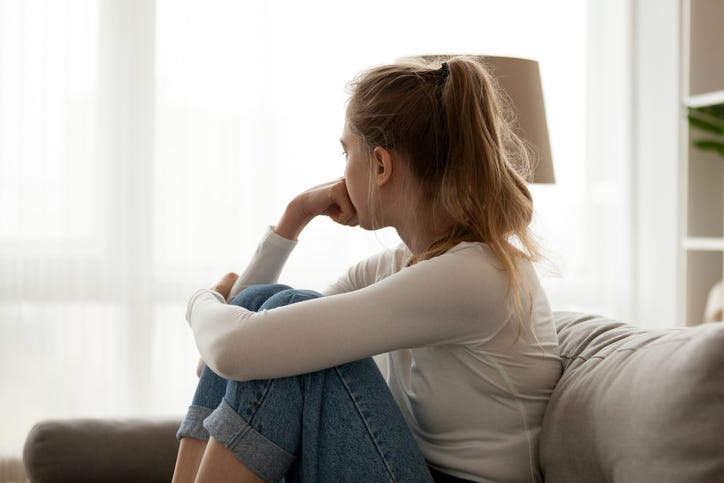
For the first time, a federal health panel is recommending regular anxiety screenings for children as young as 8 years old -- even for kids who have no signs or symptoms of anxiety.
The U.S. Preventive Services Task Force issued the recommendation last week, saying all kids ages eight to 18 should be screened for signs of anxiety, NPR reported. The panel also recommended that kids 12 and older continue to be screened for depression.
Researchers say anxiety is one of the most common conditions that a child has to deal with.
According to the Centers for Disease Control and Prevention, more than 7% of children (approximately 4.4 million kids) are diagnosed with some kind of anxiety disorder, and another 3.2% (approximately 1.9 million kids) have diagnosed depression.
A 2016 National Survey of Children’s Health points out that anxiety conditions were most common in older children ages 12 to 17 years compared with children age 11 years or younger. That's one factor the research panel took into consideration when establishing an age range for their recommendation.
The panel says screening for anxiety in children and adolescents ages eight to 18 years has a "moderate net benefit." Meantime, the evidence is insufficient on screening for anxiety in children age seven years or younger, so the balance of benefits and harms cannot be determined.
The goal of mental health screenings for children is to help health care providers identify at-risk kids and consider a treatment plan before symptoms escalate, Martha Kubik, a professor of nursing at George Mason University and a member of the task force, told NPR.
"We were already seeing rising rates of anxiety, depression and also suicide behaviors and suicide in our young people," she said.
Screening involves clinical questionnaires designed to assess a specific or several anxiety disorders. If the screening test is positive for anxiety, a confirmatory diagnostic assessment and follow-up is required.
Treatment for anxiety disorders can include psychotherapy, pharmacotherapy, a combination of both, or collaborative care. Several psychotherapy approaches have been used to treat anxiety; however, cognitive behavioral therapy is the most commonly used approach, the panel noted.
The task force's recommendations are open for public comments until May 9. A finalized version of their advice is expected by the end of the year.


